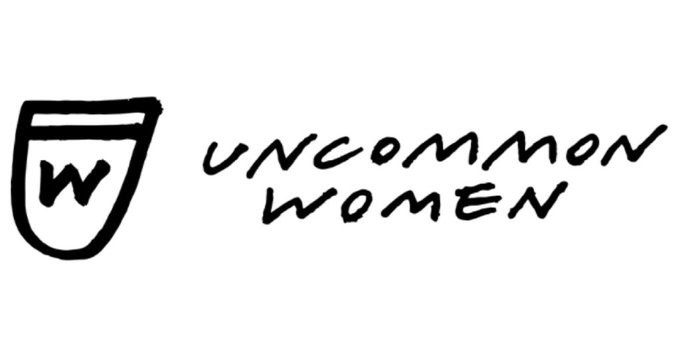Inclusivity and accessibility are values that we keep very close to our hearts at BCcampus, so when we heard about UnCommon Women we were instantly intrigued and wanted to get involved.
Post by BCcampus’ editorial team

In 2017 Kelsey Merkley, Public Lead at Creative Commons Canada, started UnCommon Women because she saw a gap between the women in senior operations roles and the men in publicly recognized leadership roles. Support for the UnCommon Women movement has been inspirational and a force for inclusivity. Rather than creating divisions, Kelsey is keen to point out that there are always a number of men who take part in the UnCommon Women panels, who listen and become advocates of the movement. Kelsey says that we are in an exciting time, where the culture is shifting to value women’s perspectives and ways of leadership rather than relying on the historically privileged male one. It’s not about devaluing the male way of doing things, but of finding the value in the female way of doing things. This diversity makes decision-making stronger. “The work is shifting the dialogue to ensure that there are pathways to women in leadership, that voices are meaningfully heard, that … they are able to participate as equals.”

Amanda Coolidge, Senior Manager of Open Education, BCcampus says, “It is about evaluating our own values and principles and determining how we are ensuring the best access, equity, and inclusion for all.”
As Amanda points out, the UnCommon Women sessions provide an opportunity for “women to learn from each other about what it means to be a woman in leadership and to celebrate and amplify the many strong, brilliant, and active women in the B.C. post-secondary community who are doing the work in support of teaching and learning.” Kelsey explains that the reason why it’s important for women to find networks of successful women is that women are more likely to advance in their career with a sponsor or advocate. The Clayman Institute for Gender Research at Stanford University states that women’s career advancement is based 20% on time served, 10% on skills development, and a whopping 70% on if she has an internal sponsor or advocate.
The UnCommon Women panels provide just that opportunity for women to find a network — vital to advancing their career — to be able to speak openly about leadership and roadblocks. These connections allow women the opportunity to reflect on their career paths and to hear from other women, which provides a positive experience to identify areas for their individual leadership growth. Kelsey explains that there are many aspects to how women approach both challenges and successes — women are more likely to seek social contact in stressful situations, respond to positive feedback, facilitate personal and group improvements, and use communication in collaborative ventures — that make the need for UnCommon Women quite common.
UnCommon Women at the Festival of Learning
We’re proud to provide diverse new sessions and support that facilitate access to our conferences for those who may otherwise have barriers to attendance — from offering childcare to self-care sessions like yoga. If you would like to take part in an UnCommon Women session, our upcoming Festival of Learning will give you the opportunity you’ve been hoping for.
Learn more:
- Reflections on Open Ed 2017: Amanda Coolidge
- UnCommon Women
- Kelsey Merkley – Twitter
- UnCommon Women Colouring Book
Join us for an upcoming event:
-
Pressbooks Training Webinar – Intro + Intermediate 1 – Apr. 16, 2018
-
Vancouver Liberating Structures User Group Meeting – Apr. 24, 2018
-
Boost your Facilitation Practice with Liberating Structures – Apr. 25 – 26, 2018
-
Facilitator Development Online (FDO) – May 7 – 18, 2018
-
Festival of Learning 2018 – May 28 – 30, 2018
To stay informed with BCcampus by signing up for our newsletter, visiting our calendar and following @BCcampus on Twitter.

